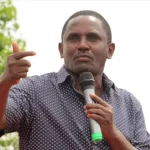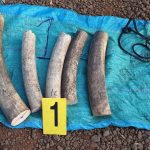“We will not seek permission from anyone to do what it takes to keep Rwanda safe,” declared Yolande Makolo, Rwanda’s Government Spokesperson, firmly reiterating the nation’s dedication to its security.
Reflecting on President Paul Kagame’s inauguration speech, Makolo emphasized Rwanda’s relentless pursuit of peace and stability.
“We are 30 years out from a genocide that almost destroyed this country, so we know the value of peace. We have fought hard for not only peace but unity,” she asserted.
Addressing the ongoing conflict in the Democratic Republic of the Congo (DRC), Makolo acknowledged the significant risks for Rwanda.
“Looking at the conflict in the DRC, Rwanda has the most to lose, and we know that hence the need to live peacefully with our neighbours,” she stated.
Makolo clarified that President Kagame’s remarks on the DRC issue were a call for collective regional action.
“What Kagame was saying is that we have to work together; all parties involved have to want peace. Peace in our region is a priority for Rwanda, yet it has been lacking, particularly in the DRC,” she reiterated.
She also highlighted President Kagame’s appreciation for the efforts of President William Ruto of Kenya and President João Lourenço of Angola in ensuring that regional solutions are effectively implemented.
“Peace cannot happen on its own. We all have to do our part and do the right things to achieve and sustain peace. This should not be seen as a favour to anyone; it is an obligation. In the end, when it doesn’t happen, that’s why people stand up and fight for it,” Kagame noted in his inaugural speech.
According to Makolo, Rwanda’s stance on the conflict is unequivocal: its security is non-negotiable.
“We have deployed heavily along our border with the DRC and put in defensive measures to ensure that the conflict, especially with the Democratic Forces for the Liberation of Rwanda (FDLR), who left Rwanda in 1994 after committing genocide, does not spill over into our country,” Makolo declared.
She pointed out that the FDLR, still active in the DRC and reportedly supported by the Congolese government, remains a significant threat to Rwanda.
“We will take whatever actions necessary to protect our borders and maintain our hard-won peace. We have done too much work in this country to get where we are now. We need to maintain safety and security in Rwanda,” she emphasized.
Makolo also brought attention to the plight of 100,000 Congolese Tutsi refugees in Rwanda, many of whom have been unable to return home for over 25 years due to ongoing insecurity. “They need to go home in safety and dignity,” she urged.
Rwanda remains steadfast in its commitment to finding a political solution to the conflict in the DRC, working closely with regional leaders and mediators.
“We are optimistic about seeing an end to this perennial conflict. We are always open to dialogue,” Makolo expressed, conveying hope for a peaceful resolution. “We want to see a political solution to this problem as there’s no military one. We want to see both nations at peace!”
The FDLR, the largest illegal foreign armed group operating in the DRC, continues to present a formidable challenge.
Though primarily composed of members of the Rwandan government and army ousted in 1994, the group now includes a growing number of Congolese members.
Its stated goal is to pressure the Rwandan government into dialogue, but its covert objective appears to be the overthrow of the Rwandan government.
The FDLR currently operates in eastern DRC and Katanga province.
Other illegal armed groups operating in the DRC include the Allied Democratic Forces (ADF), the Lord’s Resistance Army (LRA), and the National Liberation Forces (FNL), each with their own complex histories and objectives.
Rwanda’s vigilance in safeguarding its borders and securing its future remains steadfast as it continues to navigate the intricate dynamics of regional peace and security.





